

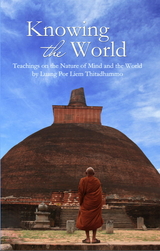
Within this little booklet are teachings on the nature of the mind and the world given by Luang Por Liem Thitadhammo. During a visit to Sri Lanka in March, 2013, Luang Por had this Dhamma discussion with the resident monastic community at Na Uyana Forest Monastery. The sincere interest in practising Dhamma and developing meditation led to practical and profound teachings on training the mind and understanding the world:
“….The guests that come to the monastery are only visitors, just like these visiting mental states that arise in our minds. Some make us laugh, some we delight in, while others bring up aversion and disappointment. When we see them from non-delusion, then we see it all as maya — as illusion and trickery, a system of deceiving….Know how to abandon the world. Know how to put it down.”
Luang Por explains that what we understand as the world is a misunderstanding. As a consequence of delusion we are overwhelmed with craving and attachment. Attaching to mental states and mind objects as ‘me’ and ‘mine’ makes us a victim of delight and aversion. This illusion of ‘self ’ and ‘belonging to self ’ arises from feeling and craving:
“….what we call the ‘Eight Wordly Dhammas’ arise from our sense of self-importance. Delight is a lokadhamma — this is sukha, or what we call happiness. Aversion is a lokadhamma, it’s dukkha — we don’t like it and we’re unhappy. See these lokadhammas as simply nature — things come, things go. The guests come and they go — it’s not their residence. For what do we go delighting and getting angry about?….‘Rupa, vedana, sañña, sankhara and viññana — having arisen they cease’. Seen in this way, everything is empty.”
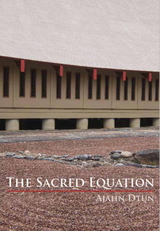
It is hoped that by reading this teaching the reader will gain a clear view of the complete path of meditation practice, and understand that solely contemplating the mind is not sufficient to free it from the mental defilements. The assumption that the mental defilements arise within the mind, and so must be dealt with solely by contemplating the mind, is true but not altogether correct. It is true that mental defilements do arise within the mind and so must be let go of within the mind, but it is not correct to believe that one can start the work of cleansing the mind at this point. This practice, as Ajahn Dtun clearly shows, is for those already highly advanced on the path to liberation, as they push forward to reach the final stage of enlightenment.
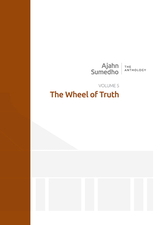
The title of this book refers to the image of the Buddha’s teaching, the Wheel of Truth (or Dhamma). It is a wheel that he set rolling in his first discourse by proclaiming the Four Noble Truths and the Eightfold Path of practice. This teaching remains as the axis of Ajahn Sumedho’s teaching and personal contemplative work. This particular collection of his Dhamma talks and dialogues is composed of material that has appeared in various newsletters and magazines before; it derives from different periods in Ajahn Sumedho’s teaching career, but it has been gathered into three parts to address overarching themes.
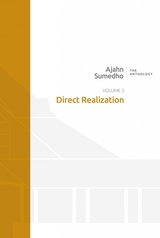
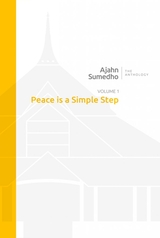

The following pages offer some means to find clarity and calm within a few minutes. They can be put into practice in a range of non-specialized situations – in the time it would take you to drink a cup of tea. If you live a busy life, this guide may help you come out of the momentum of the day and give you more time. These suggestions may also offer you a way to meditate – but that’s up to you and another guide.
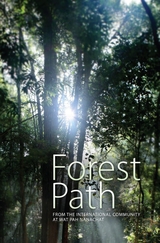
‘Forest Path’ was first printed in 1999 and originally planned as the first edition of a Wat Pah Nanachat newsletter. Over-enthusiasm and considerable proliferation resulted in a one-off book publication which more or less coincided with the monastery’s twenty-fifth anniversary. Since then we have been surprised by the number of requests to reprint this collection of little essays, talks and anecdotes about life in Wat Pah Nanachat as it was at that time. Apart from the formal Dhamma talks the book contains, we were hesitant at first to reprint its other contents, the ‘old stories’ and personal accounts by then younger authors. But it was those other parts which in fact added much of the book’s authentic flavour and made so many people find it beneficial and joyful to read.

The chapters in this wonderful book are edited transcriptions of talks given by Ajahn Sundara between 2003 and 2011. Many of these talks and teachings were given at Insight Meditation Center of the Mid-Peninsula in Redwood California. Some were from public talks and retreats held at Amaravati Buddhist Monastery in the United Kingdom. It Can Be Very Simple is taken from an interview given to The Insight Journal of the Barre Center for Buddhist Studies. Our Nature is from a talk given at Seattle Insight Meditation Society.

Do you ever find yourself dominated by a chain of thought that tells you that you’re not good enough, that you don’t deserve much, and that other people look down on you or tolerate you out of politeness? Do you find yourself snagging on memories of things you did wrong, or relationships that you didn’t get right? Do you feel that you have to be a success in life like you think someone else is – and are consequently critical of yourself? This piece of psychology is called ‘the Inner Tyrant’. The good news is that it’s not just you who has this, and that you can get free of its grip. And the key to this is through establishing, and continually re-establishing, right intent.


Let’s look at the idea of concentration, or samādhi. When you hear those four little syllables, con-cen-tra-tion, what do they imply to you? It may take a few moments to articulate it, but you might immediately feel a particular set of energies starting to take over. You probably get a sense of doing something, working hard at it to get it right. That’s the normal take. We clench up, get tight, and go for it. It’s intensive practice, a ‘concentration’ camp. No slacking! With this kind of thinking, we rev up the controlling systems, the duty systems, the work systems, and the ‘get-it-right’ systems. Right there is stress. A line of tension starts to form across your brow.











